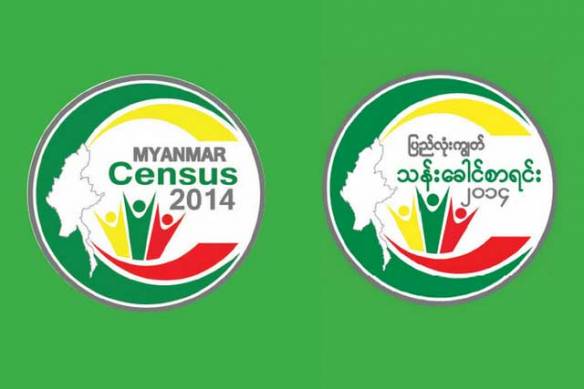Norway has spent NOK 40 million to help fund a census in Myanmar (Burma). The census results are at odds with previous assumptions and may increase the level of conflict in the country in the run-up to the elections in 2015. Norway must take responsibility.

Every country needs to know who is living within its borders. This is especially true of Myanmar, which is emerging from decades of military dictatorship and civil war. There is broad political consensus in Norway in favour of supporting reforms in Myanmar, and the census data will be important for decision-making in the future. At the same time, organizations including PRIO, the Norwegian Burma Committee, and Norwegian People’s Aid have warned that the census could derail the peace negotiations and put further strain on the democratic reform process. Several organizations recommended the omission of questions about ethnicity and religion.
In spite of these warnings, the census was conducted in April 2014. The first results were announced at the end of August. They show that the country has 10 million fewer inhabitants than previously assumed – 51 million rather than 61 million. The fact that the population has been overestimated by 17 per cent is significant for national planning. However, what makes this census dangerous is the uncertainty about other surprise results that may be lying in wait.
Ethnic tensions
The initial results deal only with the number of inhabitants, categorized by gender and place of residence. These are the least controversial results that we can expect from this census. Figures concerning ethnic and religious affiliation will be published in May 2015. There are 135 officially recognized ethnic groups in Myanmar. These groups are a construction of the previous regime, however, and are not recognized by the ethnic minorities themselves. After more than 60 years of civil war and a long series of ethnic conflicts, there is enormous mistrust between the various groups. These groups are likely to cast doubt on the census results – either on the basis of how it was conducted or the classification of the population into disputed categories. This may in turn undermine trust between the country’s ethnic minorities and the Burman (Bamar) majority, something that could jeopardize both the 2015 general elections and the peace process.
Danger of new attacks
Decades of failed political governance have provided fertile conditions for the growth of nationalistic anti-Muslim sentiment in Myanmar. Muslim areas have been attacked, with the Rohingya Muslims in Rakhine State suffering the worst violence. Several thousands have already fled abroad. The religious conflict has reached an explosive level. Previous figures concerning the number of Muslims in Myanmar have been kept artificially low. When the actual figures, which are expected to show a far higher proportion of Muslims in the population than was previously thought, are published, we fear that religious cleavages will be used deliberately to spark violent conflicts in the run-up to Myanmar’s most important elections for several decades.
Norway must take responsibility
The international community has been a driving force behind the taking of the census. It has proved to be an important exercise, but as a partial funder, Norway will be held accountable for any negative outcomes. The publication of controversial results must be considered carefully, both with regard to when and how the figures should be published – and whether they should be published at all – and how best to deal with the possible reactions. In this context Norway can make claims to the United Nations Population Fund (UNFPA) and the Myanmar authorities concerning the management of the census data and the communication of the results.
Legitimate elections in 2015, a national ceasefire, and a continuing peace process are all of crucial importance for Myanmar’s future. For this reason the results on ethnic affiliation must be published as soon as possible. Since the elections and future political representation will be based partly on the country’s ethnic composition, it is crucial to have full transparency – despite the controversy.
The question about religion is a different one. Religious affiliation has no political or electoral significance. To prevent exploitation of religious cleavages in the election campaign, the figures on religious affiliation must be withheld – at least until after the 2015 elections.
In a country where many people, with good reason, have not been able to trust official figures, it is important for information from the census to be presented openly and in accordance with fixed timetables. This will avoid unnecessary speculation and increased mistrust.
To boost the credibility of the census results, it is also important for alternative data to be collected and for new statistics to be created in accordance with international standards. This may function as a form of quality assurance of to what extent the census results reflect the actual situation in the country. The last thing that Myanmar needs today is more uncertainty, speculation and mistrust.
This text was published in Norwegian in Dagens Næringsliv 9 October 2014: Farlig folketelling
Translation from Norwegian: Fidotext